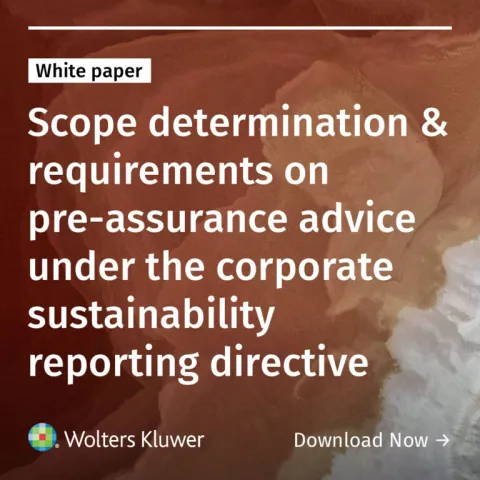Beat Weibel: Low quality patents harm European industry
November 24, 2023
The declining search and examination quality of EPO patents is not only harmful because inventions are not protected but they also create a lot of uncertainty for the industry. The problem has aggravated due to the Unitary Patent system, as thousands of Unitary Patents will flood countries where traditional European patents were not often validated in the past. The Industry Patent Quality Charter (IPQC) offered to enter into a dialogue with the EPO, but as the EPO has so far declined to discuss the problems, the IPQC will now turn to national governments for help. Beat Weibel, chief IP Counsel at Siemens and the initiator of the Industry Patent Quality Charter, said this in an interview with Kluwer IP Law.

‘We met with about thirty people at the Technical University of Munich. Half of them were from IPQC member companies and the other half of them people from a committee of the Administrative Council of the European Patent Office, that deals with technical issues but also quality issues. Unfortunately, the management of the EPO didn’t participate, they want us to use other channels for communication and are not prepared to enter into a dialogue or open up a direct channel with the IPQC anymore.
However, the members of this committee of the Administrative Council were happy to attend and I think we had a very good exchange about why we from the industry think patent quality is important and why we think - and that is maybe a new aspect - low patent quality is harmful, so to speak.
Interestingly enough, a PhD student carried out an analysis of Board of Appeal decisions of opposition proceedings, focusing on about thousand cases from 2022. It turned out that there was an extremely high change rate. In nearly 90% of the cases, the Boards of Appeal changed the decision of the opposition division. In 40% they upheld the patent in an amended form and in about 50% of the cases the patent was completely revoked.
Actually, in a case where Siemens was involved, prior art was in the file and the Board of Appeal just corrected what had gone wrong in the first and second decision.
And the interesting thing is that these amendments or these revocations were based on prior art that should have been available to the examining division and to the opposition division. Actually, in a case where Siemens was involved, prior art was in the file and the Board of Appeal just corrected what had gone wrong in the first and second decision.
Anyhow, if 90% of the decisions of the opposition division and the examining divisions are apparently regarded by the Boards of Appeal as being wrong, that doesn't speak for the quality of these instances. And why is that so? If we talk to examiners or people in the examination and opposition divisions, we hear the main reason is that the working conditions are not such that people at the EPO can concentrate on complete searches, complete examinations etc. There is so much work, which will even increase in the future, and there is so much pressure that they have to take shortcuts. We’ve now seen what this leads to in thousand opposition cases. These cases are just a sample of more important cases because somebody feels disturbed about the patent. If already for these cases, the correction is so high, something is definitely going wrong with the quality. And there are many more patents in force in the European market.
That was one part of our meeting. In another part, representatives from the member companies of the IPQC - be it from big pharma, be it from big telecom companies, be it from small start-up companies – presented why they feel high quality patents are important and why low quality patents do harm. The latter was a new aspect which we discussed intensively. Because low quality patents do not only harm start-up companies and SMEs, but this is also true for big pharma, for crop science etc. It bunges the innovation pipeline and that should be really taken seriously by the European Patent Office.
As a third element, we discussed and presented a number of concrete and in my view constructive measures how to improve quality.’
Could you give the broader perspective of why strong and enforceable patents are so important?
‘Firstly, companies like Siemens, Bayer, Ericsson have patents to protect our innovations, our inventions, in which we put a lot of effort and R&D money. We want to secure our competitive advantage. If there is no proper search and examination and we get patents that are not valid, then it's very clear that we cannot profit from this competitive advantage.
Over the last decades, technology has become more complicated and drafting patent applications as well. Siemens, for instance, has invested about 30-35% more time in drafting patent applications since 2011. On the other hand, at the EPO the efficiency and productivity of the examiners has been increased by 50%. Their output has doubled. That opens a gap which speaks for itself: there is an imbalance in investment in time for drafting on the one hand and searching and examining patents on the other.
Instead of focusing on protecting their own innovations, they are mainly absorbed to do Freedom to Operate analysis of the masses of granted patents that are invalid or too broad as the analysis of Board of Appeal decisions shows.
That's the active part, but also on the passive side, low quality patents are harmful. I'd like to recite an example from a start-up company that was present on 6 November. They have a small team and only two patent attorneys, and they said they are really fed up with the system because there are too many low-quality, invalid patents out in the field they have to deal with. Instead of focusing on protecting their own innovations, they are mainly absorbed to do Freedom to Operate analysis of the masses of granted patents that are invalid or too broad as the analysis of Board of Appeal decisions shows.
This holds for big companies as well. It could very well be that a project is not executed because an analysis of the field shows a landscape of thousands of patents. Then the management thinks: we're not going there because that's already blocked. But if these patents are all invalid, then this really harms the company.’
The creation of the IPQC in October 2023 was your initiative. Was there a particular reason that made you think: something needs to be done?
‘The main reason was the dissatisfaction with how the EPO was listening to industry. We have brought up our concerns for many years, be it via BusinessEurope, be it via the SACEPO meetings where I'm a member of. But we felt we were not listened to.
And then there was one occasion, after such a meeting last year in May or June, where the European Patent Office issued a press release which didn´t describe the controversial discussion of a so-called expert meeting properly. Then a few companies said: we cannot accept this any longer, we have to act and we formed IPQC. And the goal is not to criticize, but to enter into a constructive dialogue with the EPO, where we can bring in the applicant´s view in a very frank way, and work together on improvements. Furthermore, all IPQC member companies signed the self-obligation part of the Charter to do our own part, i.e. drafting and filing of patent applications and patent portfolio management properly.’
The IPQC organised a round table in December 2022 and a panel discussion in May 2023 in Osnabrück where the EPO management was invited, but didn’t come. In a letter in February 2023, the IPQC proposed to enter into dialogue about measures to improve patent quality, but the EPO didn’t react. A new letter sent by the IPQC, including a long list of specific concerns, was returned by EPO vice-president Steve Rowan late July with annotated comments, downplaying or denying there were problems. Do you think this is an acceptable way to address the concerns of a broad range of companies the EPO is supposed to serve?
‘Of course, the IPQC doesn’t represent all applicants, but we represent Ericsson, the biggest European applicant, we have Siemens, the second biggest European applicant, we have Qualcomm, I think the biggest US applicant, Bayer, Roche, so we have really a number of big applicants, and we also have small companies, as I mentioned. If Siemens had the same number of clients with concerns about the quality of Siemens products, I would say the managing board should listen to this.
Furthermore, I think the advantage of IPQC is we are directly involved, we are directly concerned, we can speak frankly, criticize openly and we can offer constructive measures. We represent telecom, electronics, chip industry, pharma start-up companies, small companies, SMEs, so it's really cross business, a horizontally oriented group sharing the same concerns.’
The EPO plays an important role in the Unitary Patent system. Is that an additional reason for concern?
‘Yes, indeed! Siemens for example has more and more software patents, usually in different jurisdictions. With the Unitary Patent you have one patent that is valid for the entire European Union. It speaks for itself that quality is important.
And one question that nobody has been able to answer me so far, is what all the member states will be doing with the wave of Unitary Patents that is now rolling out over countries such as Romania, Bulgaria, Portugal and others. In Germany, we are used to dealing with masses of patents, as nearly all European bundle patents are validated in Germany. But the Bulgarian industry, for instance, has probably seen a few hundred patents per year validated in Bulgaria.
The experience of the examiners should be appreciated, and retention of the examiners should be prioritized.
With the Unitary Patent this will change completely. Let’s just assume that Huawei alone files one fourth of its patent applications as Unitary Patents, then there will be thousands of patents all of a sudden valid in the country. The industry in Bulgaria cannot ignore this. But if these patents are of low quality, they do harm: they create uncertainty, particularly because the country is not used to deal with these masses of patents.’
What changes would you like to see?
‘On LinkedIn I have published measures that we discussed and proposed, which I am sure you have seen. But in short: we feel that the management of the European Patent Office should get away from its focus on productivity and efficiency, and that they should make sure that the processes, the available time for examination and search, the targets, the incentives of the examiners are such that they are able to do complete searches, complete examinations. The experience of the examiners should be appreciated, and retention of the examiners should be prioritized. Because from our point of view, we get the best examinations and the best searches from experienced examiners that have been working in the field for ten or fifteen years. If these people are pushed as they are currently, they cannot perform. And if the ambition is even to have a shorter changeover of examiners, that goes, in our view, into the wrong direction. Experience is key for a good search and examination.’
Last week, the EPO announced the so-called Active Search Division principle, a measure to tackle the concerns about quality. The Central Staff Committee has called it an 'empty shell' and a 'PR exercise'. What is your view?
‘On the positive side, it has been recognized that something is going wrong. But I have doubts whether the proposed measure to have all searches reviewed by the entire examining division is really effective. When I talked to examiners, they said: we don't know what we should review and secondly, we don't get time to review.
We think the working conditions and incentives should be such that there is enough time to perform proper searches, complete searches. The additional review of searches goes into the exact opposite direction. It is rather another procedural measure instead of a content driven one.’
It seems the IPQC's criticism has so far fallen on deaf ears. What are you going to do next?
‘We are about to discuss this within the IPQC. I have to say it's a very active and constructive group, I think the most motivated group I have been coordinating, because we have an intrinsic motivation to do something here. We will probably organize other conferences and meetings, focusing for instance on the topic of how bad patents do harm. And what the obligation of patent offices is in that respect, because that's underestimated.
If I put it in a nutshell, I sometimes feel that many of the patent offices, the EPO included, think their business model is to create as many annuities for the member states as possible in the most efficient way. But that’s not what we want. Both, society and industry need valid and enforceable patents. The business model should be: how can I create the best valid and enforceable patents not how can we grant as many patents as possible and as efficiently.
And we think the national ministries that are supervising the European Patent Office should overlook and control the system. Therefore, we think we need to address ministries to make them – and through them the EPO’s Administrative Council – aware of what's going on.’
Is there anything you’d like to add?
‘Yes, we do criticize the EPO because we are concerned, but our main goal is to entertain a constructive dialogue. We as the IPQC, since we are cross-businesses, represent all different sizes of companies and since we are experienced applicants, we have something to say. We would really appreciate it if the EPO management listened to us and gave us the opportunity to work together with them in a constructive way.’
You may also like














concerned examiner
The discussion on the quality of patents has been running around for the past 20 years. I suggest the following as an hypothesis for discussion: "the management of the EPO wants the quality of patents to be lower." Yes, I know I am provocative. But after so many years, one must wonder whether the continuous lowering of the quality of the EPO is due to incompetence or whether it is actually what the management wants. There has been a constant production pressure. There has been a constant lowering of the competencies of the new examiners (it used to be that they were supposed to have some experience in industry...). The complaints of major applicants are met with contempt, as the article shows. I think the writing is on the wall.
Max Drei
I read that start-ups complain that: "....they are really fed up with the system because there are too many low-quality, invalid patents out in the field they have to deal with." and that BigCorp is equally fed up with "the system", I ask myself who exactly is it who should get some of the blame for flooding "the system" with thousands of patents covering trivial contributions to the art. I prosecute materials and mechanical engineering applications at the EPO for a powerful US-based corporation. I don't see any great decline in search competence or examination rigour. I think I get exactly the scope the client deserves. My client thereby gets a B publication and the right, post-grant, to defend marginal patentability in court. What's the alternative? Is the EPO to refuse every marginal case? What would be the reaction to that, from IPQC? Even louder howls of protest, for sure, both from its BigCorp members and its start-up members. Is this what Steve Rowan said? Is this why EPO management declines to engage with IPQC?